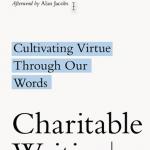This post is part of a series walking through the second volume of Abraham Kuyper’s Common
By holding the doctrine of providence with the doctrine of the decree, we restore: “the steadfastness of the order, the progression of the ordination, and the governance of divine providence.” (444) This keeps us from false ideas about providence as merely divine intervention during emergencies and helps us enjoy the Transcendent God in the here-and-now.
We as human beings are unique in creation in that we have wills to shape ourselves towards life or death. This is no sham, but rather our wills are a part of God’s ordinance. This isn’t to say that our wills govern us internally while providence governs our external lives. Even our consciences recognize the unbreakable connection between inner and outer life, and where our whole lives fit in to the sin/misery:obedience/happiness order of reality. Nor are we defined by a combination of occasional inner decisions and external encounters with God. Such ignores God’s eternal character.
Our existence is fundamentally moral. This extends through this world and into eternity in hell and heaven, though we do not understand this moral life apart from sin. Someday we will know it fully, and then providence will exist no more in this sense. Obviously we don’t want to push this too far, since providence holds all things together. So there will always be some form of it. Kuyper uses the example of a horseman. One isn’t control of the horse only when spurs and reins are in use. Instead, even when it looks like the horse is moving as one with the rider because it is so well trained that the two appear to move as one:
“… the providential mastery of God over his entire world also shines in its full splendor when no shadow of resistance can be found, when at long last there no longer will be any need for ‘pulling on the reins.’ At that point, the highest level of freedom experienced by God’s children will be on display by the very fact that they progress to eternal glory in a perfected manner in the ‘harness’ of God’s ordinances.” (447-448)
That, however, is in the future. In this world we are still bound up with sin and so providence ties directly to common grace.
“”…Christian believers can have no other conception of God’s providence than that of a providence that struggles with a disturbed world with a view to preserving and sanctifying it. Therefore, in the present life, the notion of God’s providence that we acquire from our own experience begins only with our awareness of sin and ends with the last judgment. It is at this point that God’s providence bears directly on common grace; in fact, it is inconceivable for even a moment without common grace.” (448)
Both the Belgic Confession and the Heidelberg Catechism speak to this–the former from a Divine perspective and the latter from ours. So both imply the providence/common grace connection (especially the Heidelberg Catechism). The powers of darkness are always leashed by God, without whom we would immediately fall–just as even righteous Adam did.
So common grace begins with God’s rule over he devil, and “shrinks” or “grows” with the slackness or taughtness of the leash.
Dr. Coyle Neal is co-host of the City of Man Podcast and an Associate Professor of Political Science at Southwest Baptist University in Bolivar, MO













